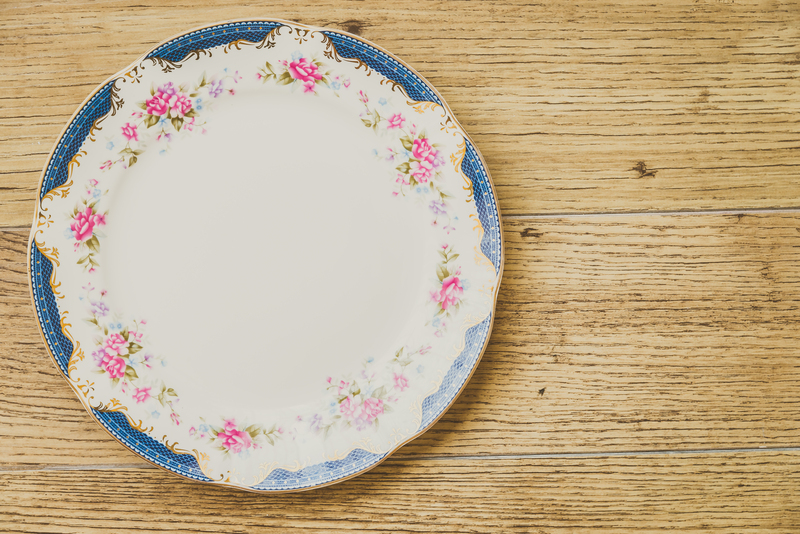Money-Smart Moves for Dealing with Bulky Waste Items
Got old furniture, broken appliances, or other oversized items cluttering your space? Don't let bulky waste put a strain on your wallet! This comprehensive guide explores cost-effective, eco-friendly, and practical solutions for responsibly managing large unwanted items.
Understanding Bulky Waste: Definition and Common Examples
Bulky waste, also known as bulk trash or large-item waste, refers to household goods that are too big for regular trash bins. These can include:
- Old furniture: sofas, armchairs, tables, desks, mattresses
- Large appliances: refrigerators, washing machines, dryers, ovens
- Outdoor items: grills, garden equipment, bicycles, swing sets
- Mattresses and box springs
- Electronic waste: TVs, computers, printers
- Renovation debris: carpets, doors, windows
Dealing with these bulky items can be overwhelming. Knowing money-smart ways to handle bulky waste not only saves you cash but also helps keep your home clutter-free and environmentally friendly.

Why Responsible Bulky Waste Disposal Matters
Improperly disposing of large waste items can harm the environment, attract fines, and cost you more in the long term. Consider these impacts:
- Environmental harm: Many bulky items contain materials or chemicals harmful to landfill sites.
- Legal issues: Illegal dumping or improper disposal may result in hefty fines.
- Lost value: Some discarded items still have value--either through reuse, donation, or recycling.
Money-Smart Bulky Waste Disposal: 7 Budget-Friendly Strategies
1. Sell Gently Used Bulky Items
One of the smartest moves is to turn your unwanted junk into cash! Before considering the landfill, explore resale opportunities:
- Online marketplaces: List items on Craigslist, Facebook Marketplace, eBay, or OfferUp. Clean, well-photographed furniture, appliances, or bicycles often sell quickly.
- Yard sales: Hold a garage sale--grouping bulky items at the curb may attract bargain seekers.
- Specialty resale shops: Some stores buy or consign used appliances, office furniture, or antiques.
Tip: Be upfront about the condition and size of each item to save everyone's time.
2. Donate to Charities and Non-Profits
Many organizations happily accept bulk waste items in good condition, which is a win-win for donors and recipients. Advantages include:
- Free pickup services: Charities like Habitat for Humanity, Goodwill, The Salvation Army, or local shelters often collect large donations at no cost.
- Tax deductions: Request a tax-deductible receipt for your donation.
- Supporting the community: Your unwanted items might become a treasure for someone in need.
Check each charity's website for their list of acceptable items and any restrictions on size, type, or condition.
3. Leverage Municipal Bulk Pickup Programs
Most cities and towns have special bulk waste collection services, often offered monthly or quarterly.
- Affordability: Many municipalities pick up bulky items for free or for a modest fee as part of your waste management bill.
- Convenience: Items left at curbside on designated days are hauled away with no lift from you.
- Rules: Confirm accepted materials, permitted quantities, and pickup schedules with your local public works department.
Ignoring local guidelines can result in fines or your items being left behind. Always follow instructions precisely!
4. Recycle When Possible
Recycling is a money-wise and eco-smart strategy for dealing with bulky waste items. Many components of large goods--like metals, wood, glass, and plastics--can be processed into new products.
- Electronics: Many cities offer e-waste recycling events or year-round drop-off centers for TVs, computers, or printers.
- Metal appliances: Scrap metal recyclers may even pay you for old washers, dryers, or exercise equipment.
- Mattresses and carpets: Specialized recycling facilities often process these items for a small fee--much less than landfill costs.
Consult your local recycling centers for details on what is accepted and any preparation steps (removing doors from fridges, sorting materials, etc.).
5. Upcycle and Repurpose for Savings
Get creative! DIY upcycling transforms "junk" into valuable assets, saving you money and reducing waste.
- Turn an old dresser into a bathroom vanity or TV stand.
- Convert wooden pallets or doors into bookshelves, benches, or headboards.
- Use appliance parts for art projects, planters, or storage containers.
There are endless tutorials online for giving new life to bulky waste items. Get inspired and get thrifty!
6. Pool Resources with Neighbors
Bulk waste removal often costs less when organized as a group. Here's how to maximize savings:
- Rent a dumpster together with neighbors or friends and split disposal fees.
- Arrange a block-wide yard sale to help everyone clear out unwanted large items.
- Coordinate a community donation or recycling drive to benefit local organizations.
Pooling resources lets you access bulk rates and can result in group discounts from hauling companies.
7. Choose the Right Junk Removal Service
When other options don't fit, hiring professional junk haulers or disposal services can be cost-effective--if you shop smartly.
- Request multiple quotes: Prices can vary widely; compare at least three companies.
- Check for insurance and responsible disposal practices: Reputable haulers recycle or donate whenever possible.
- Look for discounts: Some companies give reduced rates for same-day pickups, seniors, or military families.
- Schedule during off-peak seasons: Avoid spring clean-out surges when demand (and prices) are higher.
If you have a vehicle and physical ability, consider renting a truck for a DIY dump run to save even more.
Important Cost-Saving Tips for Managing Bulky Waste
- Plan ahead: Don't wait until moving day or major renovations to arrange bulky item disposal--advance prep can save you costly last-minute fees.
- Bundle items: Combining loads (for pick-up or drop-off) typically costs less per item than piecemeal trips.
- Understand local rules: Research what's accepted curbside, what must be dropped off, and requirements for recycling or donation.
- Avoid illegal dumping: Dumping items in alleys, fields, or empty lots can result in significant fines and legal consequences.
- Ask about "Free Days": Many municipalities or waste services offer one or two "free dump" days annually--take advantage!
Hazardous Bulky Waste: What Needs Special Handling?
Some oversized household items contain hazardous materials or require special disposal. Examples include:
- Refrigerators and freezers (contain refrigerants)
- Old air conditioners (may have Freon)
- Large batteries (from vehicles or solar power)
- Televisions and monitors (with cathode ray tubes)
- Paints, chemicals, and oils
Never place these materials in regular trash or curbside bulk pickup. Check with your local environmental agency or landfill for dedicated hazardous waste drop-off events.
How to Reduce Future Bulky Waste (and Save Money Long Term)
The best way to curb costs and clutter? Minimize bulky waste at the source.
- Buy quality: Invest in durable furniture and appliances made to last and repair rather than replace when possible.
- Think modular: Preferring furniture that can be disassembled simplifies future moves and disposal.
- Opt for rental or borrowing: For temporary needs, rent or borrow large items instead of buying new.
- Maintain items: Keep appliances and furniture in good condition to extend their usable life and resale value.
Eco-Friendly Disposal: An Investment in the Planet
Making the money-smart choice for bulky item disposal is also a win for the environment. Every large item you sell, donate, upcycle, or recycle reduces landfill demand, saves resources, and minimizes your carbon footprint.
- Donate whenever feasible; reuse is the greenest option and strongest for your wallet.
- Recycle responsibly; properly sorted waste prevents pollution and supports the circular economy.
- Avoid illegal dumping; respect your community and keep shared spaces clean.

Frequently Asked Questions: Money-Saving Bulky Waste Solutions
Q: What's the cheapest way to get rid of a couch or mattress?
A: Start by listing items for sale or donation--many charities collect for free! If those fail, use your city's free bulk pickup day, or check if local recyclers accept them at low cost.
Q: Can I just put large items on the curb with my trash?
A: Only if your municipality allows it on designated days. Unscheduled curbside dumping can incur fines. Always check your waste management guidelines.
Q: Will junk removal companies donate or recycle my large items?
A: Many reputable services partner with charities and recyclers, but not all do. Ask up front about their practices and request documentation if needed.
Q: How do I save on disposal if I have multiple bulky items?
A: Bundle all items for a single pickup, share a dumpster rental with neighbors, or take advantage of bulk load discounts from junk haulers.
Conclusion: Make Money-Smart Moves with Bulky Waste!
Dealing with bulky waste items doesn't have to be a costly or stressful ordeal. By using creative strategies like selling, donating, recycling, upcycling, or pooling resources with your community, you can save money, gain peace of mind, and help the planet. Always remember to comply with your local regulations, plan ahead, and consider the full range of budget-friendly disposal options.
Declutter the smart way--your wallet, your home, and the environment will thank you!
